| Revista Umělec 2006/2 >> True or False | Lista de todas las ediciones | ||||||||||||
|
|||||||||||||
True or FalseRevista Umělec 2006/201.02.2006 Oliver Kielmayer | u-sobě | en cs |
|||||||||||||
|
The top ten reasons
for being misunderstood insights of a committee member Oliver Kielmayer Switzerland – just like many other central European countries – has quite a diverse system of art-sponsorship. The Swiss Cantons and big cities each have their own art collections that grow by means of regular purchases of works by local artists. Switzerland also gives out annual grants for studies abroad or, generally speaking, just for works of art and it also hosts traditional public competitions for artistic and architectural projects – both of the latter allowing for big projects at decent pay. The above outlined system of art support seems fair enough. However, it also implies constant interaction of artists and their ‘expert’ selection committees. These committees are effectively the ones that decide for whom and for what exactly the money is spent on. This process naturally causes a bit of distress among artists and their sphere. It is indeed very fascinating to listen to attempted justifications for not granting an award to someone in the aftermath of a competition as it eventually casts light on the applied criteria of choice within the competition and every so often also reveals hidden and absurd prejudices against the committee. It is about time that one of these ominous committee members took a stand and answered all those in doubt and all others interested. #10: It is harder for women Quite honestly, I have never once noticed anyone actually paying attention to gender or biological sex for that matter. It is true that there is no required gender quota to be met (well, at least not in Switzerland), it is, however, also true that due to a constant majority of male applications a tendency has developed to cut female applicants some slack. This most obviously results in an advantage rather than a disadvantage for females, from all I can tell (for entirely unprofessional reasons). #9: The documentation of a work was just not good enough False; any serious committee member will not be overly impressed by picture-perfect documentation – quite the contrary, to tell the truth. Putting lots of time into impeccable marketing is more likely to arouse scepticism. The documentation needs to present the most important aspects of a work/piece/project in a concise manner. We don’t have time for intellectual dabbling! #8: Video is dead! It is actually true that it is a very difficult task to transfer a video project into writing. However, it is also true that when video works are exhibited in order to be evaluated they will be devoted much more time than any other object due to their specific nature. #7: Painting is dead! This is a very popular prejudice, even though painting is just now heading for a renaissance. I detect a parallel to #10 – there is also no quota-requirement of any kind, but in the end the few paintings that are submitted will be regarded with particular care and benevolence. It is also true though that when it comes to a medium of such history and tradition it is just very difficult to come up with something new or innovative. #6: Resume overrules actual project To assume that committees are easily impressed by today’s often over-blown resumes and enormous lists of previous exhibitions is absolutely wrong. First of all, with a little expertise it is in most cases pretty simple to tell substantial contributions apart from tiny, shrewd sketches for a MoMA exhibition. Second of all, most resumes are hardly even looked at. Admittedly, a resume can and will sometimes be consulted for guidance whenever the committee finds itself somewhat disoriented. #5: Unknown first-timers don’t stand a chance Every committee loves making discoveries, and youthful freshness has a charm one willingly succumbs to. It is, however, impossible to predict someone’s artistic potential on the basis of one piece alone and therefore it all remains plainly speculative. #4: Established, successful artists don’t stand a chance against the hip & trendy ones It is indeed generally true that radical changes are no longer central to matured art; their forms and concepts are essentially the results of years and years of hard work and vary usually with only subtly, if at all. Many successful artists have already been recognized for their work earlier on in their career which explains why grants are no longer appropriate (which has no relation whatsoever to the quality of their respective oeuvres). It is absolutely false to believe that withholding grants in these cases is intended as a punishment for artistic qualities like stamina, substance and long-term engagement, which in contrast, committees do appreciate tremendously. #3: Got to be mainstream Once again: every committee wants to discover new and exciting stuff. They usually consist of experts who are familiar with the mainstream and consequently they recognize anything new and different. It is, however, also true that in controversial situations it is a mere practical necessity to employ the democratic method of a simple majority vote – whether this then qualifies for being a preference of mainstream, I don’t quite know. #2: To get a grant, you must personally know the committee Touchy topic. It is true that surplus information about an artist, especially when it comes to more complex works and their documentation, can help the committee to decide in his or her favor. In contemporary art, context knowledge is essential. To many artistic and architectural competitions one has to be invited in order to participate – quite naturally nobody entirely unknown will be on the mailing list. When it finally comes down to judging the piece then, personal acquaintance may lead to a juror’s/committee member’s abstaining from the vote, on grounds of interest. That is of course of no help to the overall process, I might add. And by the way, most attempted "product-placements" and acquaintance strategies are simply pitiful and ridiculous, if not counter-productive. Any committee member does, just like anyone, appreciate being recognized and complimented for their work. But compliments are only of real value when delivered subtly and on the basis of facts, not induced by notorious brown-nosing. #1 The committee is amateurish and incapable! Oh, please! These committees usually consist of highly skilled professionals that deal with art on a daily basis. It is actually quite possible that a small-town sensation is not quite so sensational and revolutionary on a larger scale. It could even seem like a cheap spin-off of an international project. Many artists don’t keep in mind that a singular innovation is not necessarily an innovation in the overall artistic discourse. Well, it is of course true that committee members are fallible humans. Very often it is the very same people presiding over too many committees. It is also true that some of them have their own personal agenda and prefer strategic decisions. On the other hand if the committee really is entirely biased, amateurish and incapable, one is yet to be discovered elsewhere by others. Now, that’s good and soothing news, huh? It really is always possible that the whole world is mistaken, except for oneself!
01.02.2006
Artículos recomendados
|
|||||||||||||
|
04.02.2020 10:17
Letošní 50. ročník Art Basel přilákal celkem 93 000 návštěvníků a sběratelů z 80 zemí světa. 290 prémiových galerií představilo umělecká díla od počátku 20. století až po současnost. Hlavní sektor přehlídky, tradičně v prvním patře výstavního prostoru, představil 232 předních galerií z celého světa nabízející umění nejvyšší kvality. Veletrh ukázal vzestupný trend prodeje prostřednictvím galerií jak soukromým sbírkám, tak i institucím. Kromě hlavního veletrhu stály za návštěvu i ty přidružené: Volta, Liste a Photo Basel, k tomu doprovodné programy a výstavy v místních institucích, které kvalitou daleko přesahují hranice města tj. Kunsthalle Basel, Kunstmuseum, Tinguely muzeum nebo Fondation Beyeler.
|







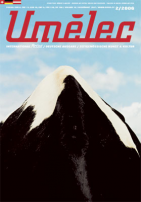

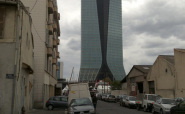

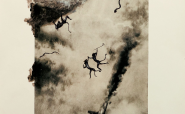
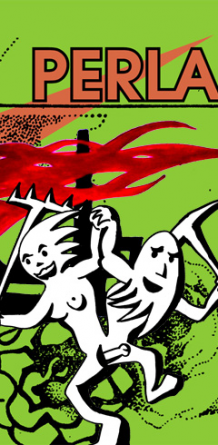











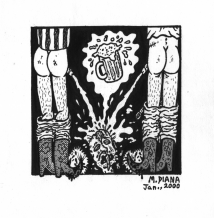





 New book by I.M.Jirous in English at our online bookshop.
New book by I.M.Jirous in English at our online bookshop.
Comentarios
Actualmente no hay comentariosAgregar nuevo comentario